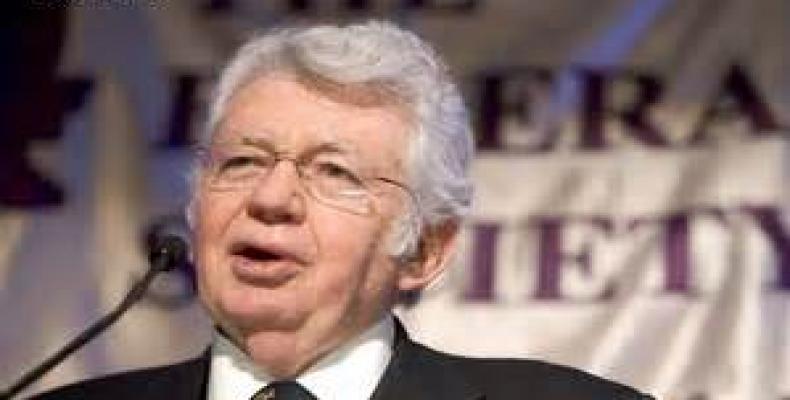Washington, August 29 (RHC)-- A U.S. federal appeals court has reversed a lower judge's order to stop the National Security Agency (NSA) from collecting the phone records of Americans under a widespread spying program that has raised privacy concerns.
The U.S. Court of Appeals for the District of Columbia Circuit on Friday sent the NSA spying case back to a lower court for further proceedings between privacy advocates and government lawyers. The three-judge panel ruled that challengers to the telephone records collection failed to prove that their own records were collected.
"Although one could reasonably infer from the evidence presented the government collected plaintiffs' own metadata, one could also conclude the opposite," wrote Judge Janice Rogers Brown. As such, the plaintiffs "fall short of meeting the higher burden of proof required for a preliminary injunction," she added.
Judge David Sentelle went further, declaring that the challengers "have not demonstrated that they suffer injury from the government's collection of records" and urging that the case be dismissed. The judges also ruled that the program's secrecy "is a feature of the program, not a bug," despite the change in a law that imposes some new limits on the bulk collection of telecommunication metadata on US citizens by American intelligence agencies.
The law in question was the Patriot Act that expired in June and was replace by the USA Freedom Act by Congress. The new law would require telecommunications companies to collect and store phone records the same way that they do now for billing purposes and the NSA only can obtain information about individuals with permission from a federal court.
In June 2013, former NSA contractor Edward Snowden revealed the massive phone record collection program. Secret documents disclosed by Snowden showed that a US surveillance court had secretly approved the collection of millions of raw daily phone records of Americans.


